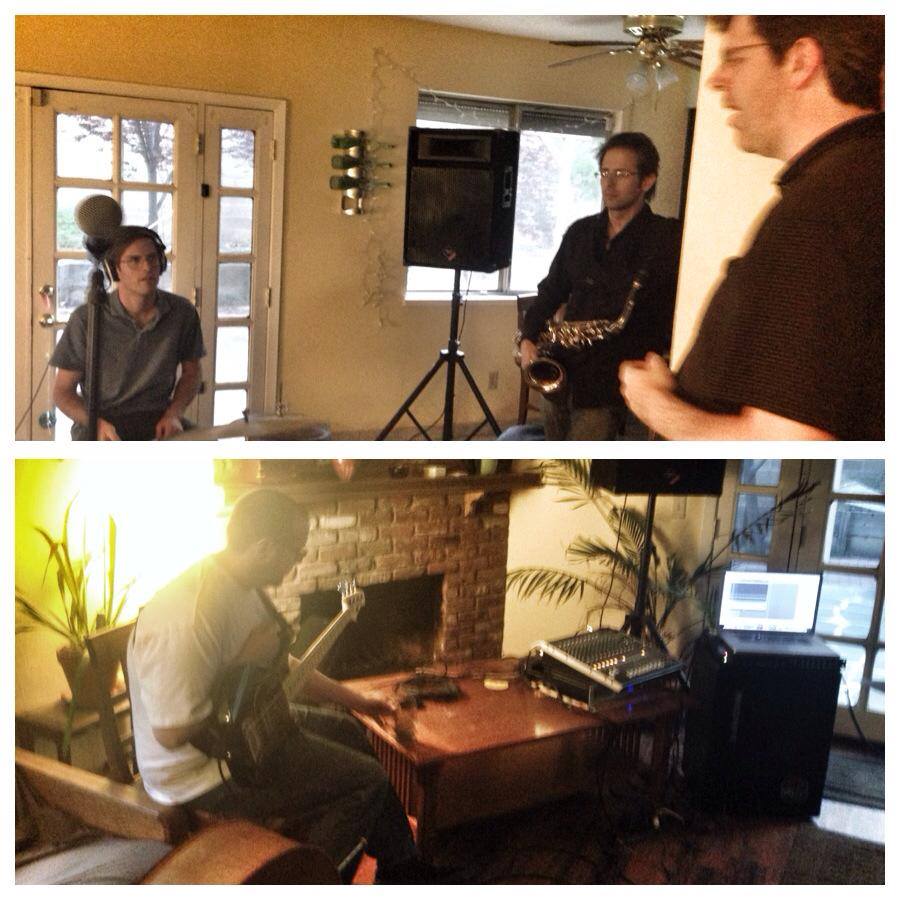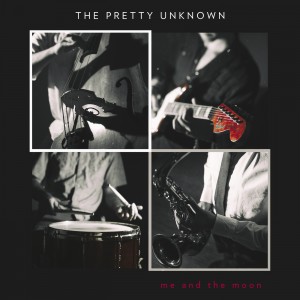 Ok – in our next segment, we’ll talk about a part of the process of recording our first album we hadn’t expected. A little thing called “Pre-Production”. So read on for tips to recording your first album!
Ok – in our next segment, we’ll talk about a part of the process of recording our first album we hadn’t expected. A little thing called “Pre-Production”. So read on for tips to recording your first album!
See, we’d found our studio. We’d chosen our songs. We’d learned our parts. We were ready – ready to book a block of days, turn on the pre-amps, check the levels, and press record on Pro-Tools.
Right?
Wait.
A producer worth his salt will offer you the chance to do some pre-production before your first recording session. And a band who takes itself seriously should take the opportunity.
“But I thought the years of writing the songs, rehearsing, and performing live WERE pre-production,” said The Pretty Unknown (all of us, in unison).
“Nope,” said the booming voice from the control room.
Having a good song, rehearsing it, and being comfortable performing it ARE pre-requisites to recording your first album. But there’s one piece missing you won’t have done yet. Pre-production.
Pre-production involves the one member of your band you probably don’t know yet.
Your producer.
PRODUCER
Pre-production is when your producer or audio engineer spends time with you outside of the studio, before you begin recording. He or she will come to your rehearsal space, listen closely to each of your songs, both live and in demo form, and critique their structure, melody, hooks, tempo, lyrics, arrangement, and length.
That’s a lot for one person to consider, for sure. But that’s why it’s important to find a producer who is not only good at making you sound great, but who also understands your target market and who can help you make small (or even large) improvements to your songs before you spend thousands of dollars recording them.
For us, that person is Tom Gordon of Imirage Sound Lab.
HONEST FEEDBACK
The truth is, we all knew Tom. Many of us had taken his recording class at the University of Nevada. He’d also been one of the judges at the 2013 Made in Reno Songwriting competition in which we’d competed a year prior.
We didn’t win.
That may not sound like a good thing, but it is.
Why?
In short, not only do we respect Tom for his knowledge, his consistent participation in the local music scene (in and out of the studio), but also for his candid feedback about all original music and recordings. We knew he’d give us his honest opinion.
And for that very reason, I was honestly a bit nervous the first evening he showed up at my house. What would he think?
The evening arrived, the band set up, and the doorbell rang. Tom (who likes to describe himself as 5’ 20”) stepped inside and we got to work.
He had us play each song, once, and then again immediately after. He’d take notes on that song, it’s tempo, composition, and our performance of our various parts. Then we’d move on to the next song.
We are recording 14 songs and we played them each twice that night. 28 songs. That was a long night.
By the end of the night, his unlined white notepaper was full of scribbled notes for each song.
TEMPO PROBLEMS
One of the first things we noticed was that because we, as a band, hadn’t been consistently playing or rehearsing to a metronome or click track, we unknowingly fell into the same “comfortable tempo” for many of the songs. While we didn’t notice it, Tom sure did, and he informed us that songs of the same tempo would quickly make a record feel stale. By choosing a different tempo for each song (keeping them at least 3-5 BPM apart from each other), we could create an unconscious sense of uniqueness for each song.
Secondly, we weren’t used to playing to the click track as a band. We had all done it individually, but not as part of our consistent rehearsal. After our first evening of pre-production, Tom was worried about our ability to efficiently record without getting more comfortable with playing to the click, so we made the executive decision to push our recording start date back one week and get an extra couple practices in.
Thank god we did. A few extra rehearsals playing to the click track did the trick, and we (and Tom) were confident our time in the studio would be used efficiently.
POLISHING HOOKS
We made a few structural changes to the songs as well, which involved placing the hooks earlier in the tunes and more often, as well as “finishing strong.” Some of the outros we’d written were long and artistic, deviating from the key format of the tunes. We found ways to maintain the purpose of the outros, while maintaining the momentum of the song. In some cases the outros even became bridges.
In all, Tom came to 3 separate pre-production sessions, and we finished the phase feeling much more confident that we were stepping into the recording arena ready – prepared for what was to come.
Check back soon – more honest experiences to come for our First Time in the Recording Studio Blog Series!
The Pretty Unknown
A pop band in Reno taking over the world, one diminished chord at a time.
READ “LESSONS LEARNED PART 1” HERE
PS!!!
 We’re proud to announce the release of our first single: Me and the Moon.
We’re proud to announce the release of our first single: Me and the Moon.
Get it from CD Baby HERE. It’ll be on iTunes and Amazon shortly.
We’ll be launching our Kickstarter shortly where you’ll be able to help fund our project, and get all sorts of great swag from The Pretty Unknown while you’re at it. For now, enjoy our first tune. It’ll be up on youtube shortly, but it’s up here first!
